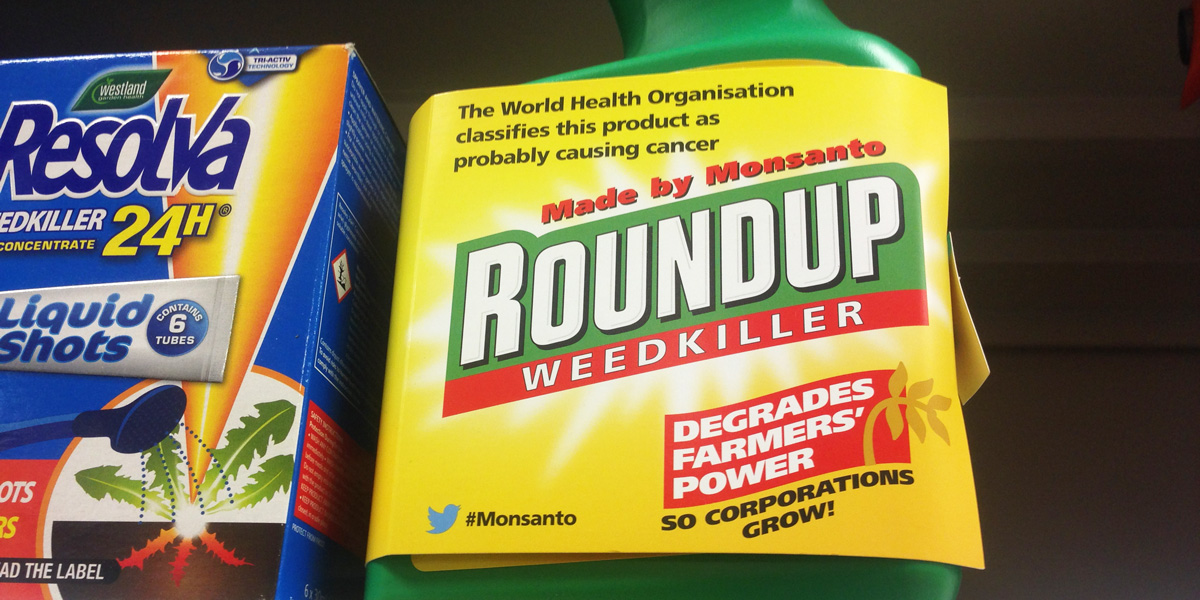
Verdict does not contradict IARC conclusion that glyphosate is a probable carcinogen – and is fatally undermined by conflicts of interest with industry
The FAO/WHO Joint Meeting on Pesticide Residues (JMPR), a UN body, has released an assessment concluding that the weedkiller glyphosate is “unlikely to pose a carcinogenic risk to humans from exposure through the diet”.
Reuters misleadingly reported this story with the headline, “UN experts find weed killer glyphosate unlikely to cause cancer”.
The Reuters reporter wrote, “The conclusions appear to contradict a finding by the WHO's Lyon-based International Agency for Research on Cancer (IARC), which in March 2015 said glyphosate is ‘probably’ able to cause cancer in humans and classified it as a 'Group 2A' carcinogen.”
But Reuters’ interpretation of the JMPR verdict is incorrect. JMPR was only addressing risk, the likelihood that actual exposures to glyphosate will cause cancer, and specifically through diet. IARC, for its part, also addressed risk, because it considered that glyphosate causes cancer at real-life exposure levels. But in addition it addressed hazard, the potential for glyphosate herbicides to cause cancer due to their intrinsic properties.
So first, the JMPR’s verdict does not in any way contradict the verdict of the IARC.
Second, and most importantly, Europe’s pesticide Regulation 1107/2009 is hazard-based, not risk-based, when it comes to carcinogenicity. If a substance is potentially carcinogenic, it is a priori not allowed to be approved – subject to two narrow exceptions (negligible exposure or serious danger to plant health that cannot be controlled by any other means).
No arguments are allowed along the lines that the doses people are exposed to through diet or by any other route are probably safe.
This means that, based on IARC’s primarily hazard-based verdict and under Regulation 1107/2009, and quite regardless of JMPR’s verdict, glyphosate should not be marketed at all in Europe.
JMPR does not say that glyphosate is not carcinogenic (hazard-based assessment), but that ”glyphosate is unlikely to pose a carcinogenic risk to humans from exposure through the diet”.
That is a risk-based statement, and moreover only deals with risks via diet.
So the JMPR statement is not relevant to the question of whether the substance is carcinogenic or not. If glyphosate is carcinogenic, it is not allowed to be approved in Europe and EU member states should vote against its re-approval. End of story.
Conflicts of interest
The JMPR verdict is in any case fatally undermined by the conflicts of interest of its panel members.
At least two members of the JMPR panel, Alan Boobis and Angelo Moretto, have serious conflicts of interest with industry. Both have ties to ILSI, which is primarily funded by chemical companies such as Dow, Syngenta and Monsanto. ILSI specialises in designing industry-friendly risk assessment methods for incorporation into regulations worldwide.
The European Food Safety Authority (EFSA) no longer allows its expert panel members to also work with ILSI.
Boobis and Moretto took more than an incidental role in the JMPR panel on glyphosate. Stéphane Foucart, a science journalist with the French newspaper Le Monde, pointed out on Twitter, “Alan Boobis and Angelo Moretto (ILSI associates) were not only members of the JMPR WG [Working Group] on glyphosate. They were resp[ectively] chair and co-chair.”
Foucart has written an article for Le Monde on the JMPR verdict, though it is unfortunately behind a paywall.
Acknowledgement: GMWatch thanks the campaigners and experts who contributed to discussions of the significance of the JMPR verdict. Those discussions fed into this article.
Image: Global Justice Now










